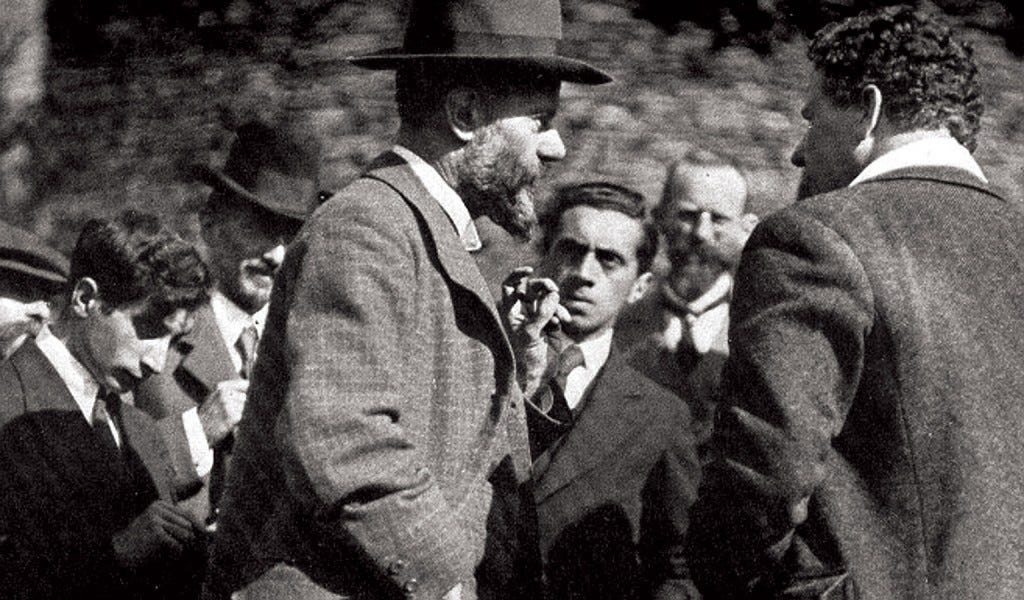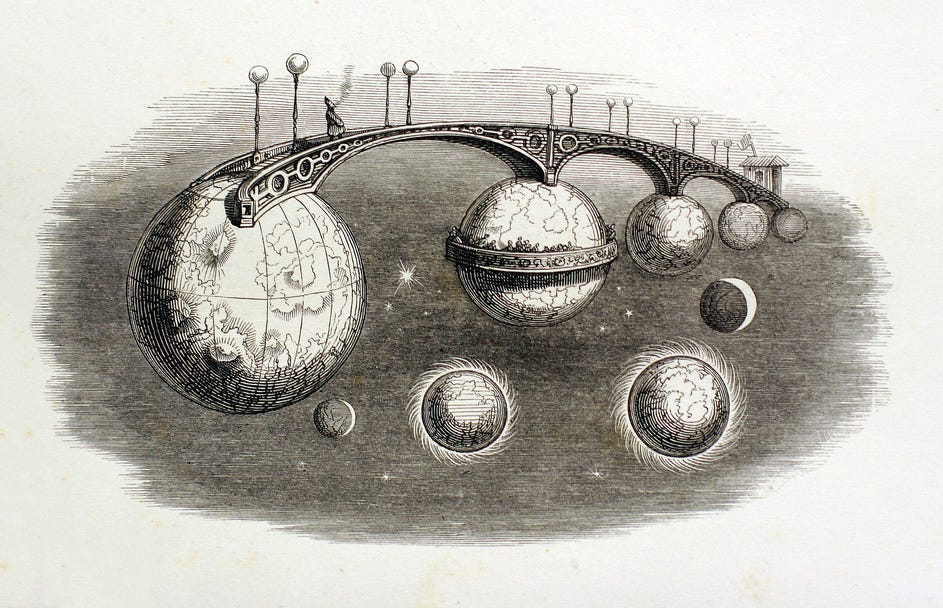HERE I STAND. I CAN DO NO OTHER.
September 2020
“What would you want your loved one to say about you at your funeral?”
Before officially becoming a writer for the New Yorker, V was confronted by a friend with this question. The friend was leaving her job to become a life coach and was using V as a beta tester for her service. V was product managing at a tech company, whose goal is to democratize storage.
Having worked in technology for most of his career, V had a grasp of the concept of democratization, although he did find it somewhat abstract until his friend’s question crystallized what was once an elusive thought.
That’s when I realized that my job is to tell good stories. Writing, for me, is just a tool. What I want to do is to make people feel less lonely through my stories, and if that means writing jokes for the New Yorker. Sure. If that means writing scripts for a Netflix rom-com. Sure.
He sounded determined. What V wishes to democratize is the type of empathy that’s only made possible through stories of universal laughter and forgetting. Through these stories, we build an intimate understanding of the characters that we encounter as if we’ve known them all our lives. Leaving the stories, we feel a bit more seen, a bit less lonely. There are many ways he’d be able to create these stories. Writing is just one of these ways. He’s more loyal to the why, the how comes naturally as that’s something he’s always been good at — the art of words. I was inspired, but not merely by his devotion, but more so by the clarity and humility through which he describes his ambition. He isn’t dogmatic about his approach, his profession, or his title, instead, he focuses simply on the things-to-be-done and the practical journey of such obligation.
The question V’s friend asked stuck with me ever since, like a whale swimming quietly in a tank. I’ve been careful not to disturb the water to stay focused, but the whale finally lashed his tail when I encountered Max Weber’s collection that found its way to the shelves of my favorite bookstore.

In the summer of 1917, a group of university students in Munich invited Weber to launch a lecture series on “intellectual work as a vocation”. He was a popular choice by the students in Munich, who formed the Free Student Alliance to battle the German universities that advocate for the idea of an objective Truth.
Weber was like the dark knight representing another side of reason, battling against the patriotic traditionalists, who claimed that to oppose the state was to oppose reason itself and to emphasize the state’s greatness was to stress what’s true. Universities had become the new church, where prophets were established and meaning disseminated. Students flocked to Weber’s lecture in the hopes of finding clarity, but also “meaning”, as the title of the lecture entailed. Yet, what Weber brought was disenchantment.
Weber argued, to lead the life of scholarship began with the duty to recognize that universities cannot deliver ready-made world views, especially in a time when the imbalance of narratives were already clouding sound judgments. Scholars had the duty to exercise self-restraint and instill an unflinching honesty in their students. Anything superfluous would be a violation of professional ethics. The role of a scholar isn’t to be a thought leader, a charismatic speech giver, a futuristic prophet, but simply to introduce potential ways to recognize realities clearly and to find alternative paths forward.

Footbridge between worlds | Un Autre Monde by JJ Grandville
It is in this light, Weber introduced his infamous term “the disenchantment of the world.”He was keenly aware that rationalization and disenchantment could weigh heavily on the soul, and a disenchanted world could be dark and wintry. The starry-eyed young scholars came in the lecture to look for answers, and Weber pointed out it was precisely this yearning for meaning and authenticity that propelled the students to expect their professors to pose as prophets in the classroom. Yet like a mean uncle who walked in the room to tell the kids that Santa doesn’t exist, Weber walked in the lecture room, offering corrective and bleak prospects of education:
If scholarship and science can do anything, it is precisely to uproot and destroy the belief that the world has anything as a ‘meaning’!
For students interested in academic life, Weber felt a moral obligation to dash their Romantic impressions that university studies should focus on the search for capital-T truth and the evangelical dissemination of that truth. Instead, Weber said, they would become specialists in a field they would never fully master, the point of which was to provide those who come after with the means of even greater mastery and thus erase the contributions of those who came before them: you will work diligently, that is, in hopes of being forgotten.
It wasn’t a surprise that one student who was present at the lecture later wrote:
Weber has transformed scholarship and university study into ‘respectable suicide’, a path to death that leads through stoic heroism.
Weber didn’t deny the possibility that the life of a scholar could be its own reward, but only if the hero devotes his soul to the journey itself, not the destination. As fickle and unpredictable as “inspirations” and “ideas” are, they are prerequisite to any meaningful discoveries. And the only way to have these “inspiration” is through an irrational passion for the task at hand with almost no expectation for the outcome:
The only way to have “personality” is to be wholly devoted to what you are studying. And that is true not only in scholarship. All great artists known to history entirely devoted themselves to their work. Even a personality in the arts of Goethe’s stature had to pay the price for taking the liberty of trying to turn his “life” into a work of art.
He then suggested that the most common distraction from devoting oneself to one’s work is one’s own ego:
How can I prove that I’m more than a mere ‘expert’?
How can I say something different in form or substance from anything that has ever been said before?
To Weber, people who are concerned with these questions come across as small and petty.
These longings [to be contrarian for the sake of it] diminish the person who has them, whereas inner devotion to his task is the only thing that can raise him up to the heights and dignity of the matter at hand, the cause he claims to serve.
I start to imagine what it would be like if Weber were to livestream this lecture in 2020, where people are outsmarting each other and making new faith out of personalities and serving the god whose true name is the algorithm.
Despite all the multitudes yearning for new prophets and saviors, the situation today is the same as the one described in the Book of Isaiah, in the song of the Edomite watchman during the time of exile:
One calleth to me out of Seir: Watchman, how much longer this night? Watchman, how much longer is this night? The watchman sayeth, The morning cometh, but it is still night. If ye will enquire again, come back again.
Weber’s lecture lingers on my mind. It isn’t meant to provide any inspiration, it simply stated a scholar’s life the way it is. What he provided was guidance on understanding the practical value of scholarship even when there might be no meaning but to connect two nodes with a newfound edge. Young and ambitious German students flocking to the classrooms to look for meanings from the most popular professors doesn’t sound like a foreign phenomenon, because such collective meaning finding is now happening everywhere. The Romantic narratives that serve well in peaceful times become dangerous in a time of chaos. When uncertainties become the norm, controlled variables become the new scarcity. Just like Weber’s poignant portrayal of academic life has clarified what it takes to pursue a path toward scholarship, the organization’s leaders are stepping up and becoming honest about the work they do. Companies start building in public, the government starts revealing their progress, leaders start revealing vulnerabilities. On the surface, it seems like the movement of rationalization is taking place at scale, as the tools to reach a visually rationalist conclusion become readily accessible. But often times, the data-driven analysis can also be a form of enchantment, even if there are only a few missing variables. The most dangerous is enchantment in the disguise of disenchantment when rationality itself becomes a cult-like fever that puts unity and peace at peril. When the supply of disenchantment is abundant, the demand for its complementary — “hope, dreams, wonders” — also increases. The more rationality seems to dominate, the more we also desire its complementary. The two need to coexist for a state of equilibrium.
For some reason, I started to think about V’s question again in a time like this.
“What would you want your loved one to say about you at your funeral?”
If the demon for the world is its deception and sufferings, then the demon for us is our own deception and eventual demise. If we choose not to avert our gaze, but to stare into a demon’s eyes, we want to have some clarity on this question.
Yet to answer the question means we have to supplement what Weber hasn’t answered. Weber himself acknowledges that increasing rationalization and intellectualization does not mean a greater general knowledge of the conditions we live under. I start to believe part of that knowledge emerges somewhere while we develop deep empathy for our planet, with one another, and with our own potential. We show courage when we take on the responsibility to navigate the areas where reasons haven’t touched. We can no longer outsource meaning finding to anything other than ourselves. This is a journey with a choice in our own hands: do we escape into blissful oblivion, self-deception, or do we confront reality as it is?
Luckily enough, I get to be surrounded by people like V who are taking a strong stance. They choose to go full force with their conviction, understanding the possibility that they might be misunderstood, dismissed, or simply forgotten. When presented with the choice to share their beliefs or to solve problems. These people almost unanimously chose the latter. According to Weber, these people are mature human beings:
What does move me, immensely, is when a mature human being - whether old or young in years - takes real responsibility, with his whole soul, for the consequences of his actions and, following ethics of responsibility, stops at some point and says: “Here I stand. I can do no other.”... To that extent, the ethics of personal conviction and the ethics of responsibility are not absolutely opposed: they complement each other.
The sky of San Francisco is a bloody orange smogged with old dreams, while the sky of New York is crisp and clear. Two visions of the same sky are shared by you and me. As I type this letter, I can smell like the last rose of summer and see the first leaves that will turn red. There’s a sense of clarity that is pushing me to go just a few feet deeper into a path less taken, capturing the impossibles being made possible, hoping to be a part of it.